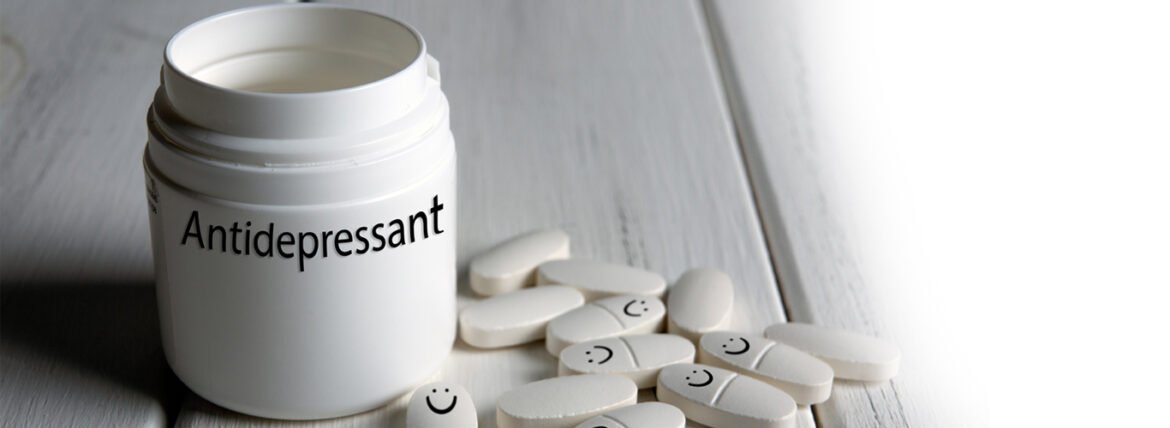Introduction
Depression is a common but serious mental health condition that affects millions of people worldwide. While therapy, lifestyle changes, and support systems are important, medication often plays a crucial role in treatment. Understanding how antidepressants work, when they are prescribed, and what to expect can help patients and families make informed decisions about care.
Why Medication is Used in Depression Treatment
Depression is linked to chemical imbalances in the brain involving neurotransmitters such as serotonin, dopamine, and norepinephrine. Antidepressant medications help restore these imbalances, reducing symptoms like sadness, lack of energy, and hopelessness.
Types of Antidepressant Medications
1. Selective Serotonin Reuptake Inhibitors (SSRIs)
- Most commonly prescribed type.
- Increase serotonin levels in the brain.
- Examples: Fluoxetine (Prozac), Sertraline (Zoloft), Escitalopram (Lexapro).
2. Serotonin-Norepinephrine Reuptake Inhibitors (SNRIs)
- Increase both serotonin and norepinephrine.
- Helpful for depression with fatigue or chronic pain.
- Examples: Venlafaxine (Effexor), Duloxetine (Cymbalta).
3. Tricyclic Antidepressants (TCAs)
- Older medications, less common due to side effects.
- Useful when other treatments fail.
- Examples: Amitriptyline, Nortriptyline.
4. Monoamine Oxidase Inhibitors (MAOIs)
- Among the earliest antidepressants, rarely used today.
- Require strict dietary restrictions.
- Example: Phenelzine (Nardil).
5. Atypical Antidepressants
- Work differently than traditional types.
- Examples: Bupropion (Wellbutrin) for energy and motivation, Mirtazapine (Remeron) for sleep and appetite.
Benefits of Antidepressant Medication
- Reduces sadness, hopelessness, and irritability.
- Improves concentration, energy, and sleep.
- Allows patients to engage more effectively in therapy.
- Helps prevent relapse in long-term treatment.
Possible Side Effects
- Nausea, headache, or dizziness.
- Sleep disturbances (insomnia or drowsiness).
- Sexual side effects (decreased libido).
- Weight changes.
- Some may take weeks to show benefits.
Importance of Medical Supervision
- Only a licensed psychiatrist or physician should prescribe and monitor antidepressants.
- Medication adjustments are often necessary to find the right fit.
- Never stop medication suddenly without guidance, as withdrawal symptoms may occur.
Combining Medication with Therapy
Research shows the best outcomes often come from a combination of medication and psychotherapy. While medication helps correct chemical imbalances, therapy addresses thought patterns, coping strategies, and underlying causes of depression.
When is Medication Recommended?
- When depression is moderate to severe.
- If therapy and lifestyle changes alone are not effective.
- When symptoms significantly interfere with daily functioning.
- If there is a history of recurrent depression.
Conclusion
Medication can be a vital tool in treating depression, offering relief and improving quality of life. While it’s not the only solution, when combined with therapy, lifestyle changes, and support, it provides a strong foundation for recovery. The key is personalized treatment under professional guidance.
FAQs
Q1: Do antidepressants cure depression?
No, they manage symptoms but work best alongside therapy and healthy lifestyle choices.
Q2: How long do antidepressants take to work?
Usually 4–6 weeks before noticeable improvements appear.
Q3: Will I need to take medication forever?
Not necessarily. Some people need short-term treatment, while others benefit from longer use.
Q4: Are antidepressants addictive?
No, they are not addictive, but sudden discontinuation can cause withdrawal-like symptoms.
Q5: Can I drink alcohol while on antidepressants?
It’s best to avoid alcohol, as it may reduce effectiveness and worsen side effects.

